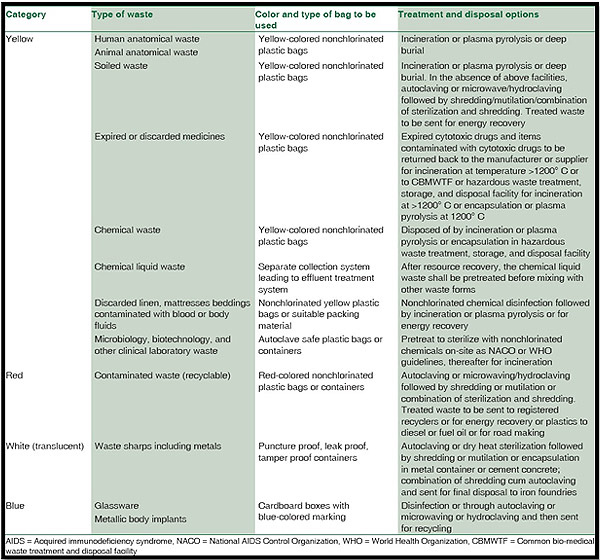A Biased View of Reclaim Waste
A Biased View of Reclaim Waste
Blog Article
The Ultimate Guide To Reclaim Waste
Table of ContentsSome Of Reclaim WasteMore About Reclaim WasteReclaim Waste Things To Know Before You BuySome Known Factual Statements About Reclaim Waste What Does Reclaim Waste Do?
Domestic sewer waste refers to the waste and items from a household septic container. The appropriate management and disposal of domestic sewage waste call for liquid waste to be transferred to a sewer treatment plant where the correct techniques and equipment are used to detoxify and dispose of waste.
Business waste usually includes potential threats, such as flammable products or a blend of fluid and solid waste items, and requires an advanced and in-depth disposal process. The disposal of industrial waste typically entails the filtration of waste prior to transportation to ensure secure and proper disposal. Industrial waste is developed from byproducts and overflow of industrial procedures and manufacturing.
This type of waste can not make use of the exact same sewer management transport or processes as septic or business fluids. The hazardous waste monitoring procedure requires the examination and testing of liquid waste prior to it undertakes the disposal procedure (liquid waste disposal). Overflow waste is the fluid waste that comes from runoff and excess stormwater in extremely booming locations or cities
Overflow waste can create contamination and flooding if not handled correctly. Making sure correct waste monitoring can stop catastrophes and lower ecological damage.
The Single Strategy To Use For Reclaim Waste
Get in touch with PROS Services today to learn more about our waste administration and disposal solutions and the appropriate methods to take care of the fluid waste you create.
(https://www.callupcontact.com/b/businessprofile/Reclaim_Waste/9368278)Do you understand what occurs to your water when you end, flush the bathroom or drain the washing maker? No? Well, it's worth understanding. This so-called 'wastewater' is not just a vital resource however, after therapy, will certainly be released to our land, waterways or the sea. Utilized water from bathrooms, showers, baths, kitchen sinks, washings and commercial processes is referred to as wastewater.

water used to cool machinery or clean plant and devices). Stormwater, a kind of wastewater, is drainage that streams from farming and metropolitan locations such as roof coverings, parks, gardens, roadways, courses and rain gutters into stormwater drains, after rainfall. Stormwater moves unattended directly to local creeks or rivers, ultimately reaching the ocean.
How Reclaim Waste can Save You Time, Stress, and Money.
In Queensland, most wastewater is treated at sewer therapy plants. Wastewater is transferred from residential or commercial websites with a system of sewers and pump stations, called sewerage reticulation, to a sewage treatment plant. Regional governments construct, maintain and operate most sewer therapy plants. Operators are licensed under the Environmental Management Act 1994 to release cured wastewater at an acceptable environmental standard right into rivers.
The Department of Natural Resources recommends neighborhood governments about handling, operating and maintaining sewerage systems and treatment plants. In unsewered locations, city governments may need homeowners to mount individual or household sewer treatment systems to deal with residential wastewater from commodes, kitchens, shower rooms and washings. The Department of Natural Resources authorises the use of home systems when they are shown to be efficient.
The majority of stormwater obtains no treatment. In some new class, treatment of some stormwater to remove litter, sand and gravel has started utilizing gross pollutant catches. Wastewater therapy occurs in four stages: Eliminates strong issue. Larger solids, such as plastics and other objects incorrectly discharged to drains, are eliminated when wastewater is gone through displays.
Uses tiny living microorganisms recognizes as micro-organisms to break down and eliminate staying liquified wastes and great fragments. Micro-organisms and wastes are included in the sludge.
What Does Reclaim Waste Do?
Nutrient elimination is not readily available at all sewer therapy plants because it requires expensive specialised tools. Clear fluid effluent generated after therapy might still contain disease-causing micro-organisms - industrial wastewater treatment.

This usually indicates wastewater needs to be dealt with or impurities eliminated prior to it can be released to rivers. A lot of wastewater moves right into the sewage system. Under the Act, regional governments provide approvals and licences for environmentally relevant activities (Periods) entailing wastewater launches that might have a neighborhood effect. The department provides authorizations and licences to her latest blog Periods entailing wastewater launches that might have a local or statewide impact.
What Does Reclaim Waste Mean?
Tracking supplies factual info concerning water quality and can verify that licence problems are being met. The info obtained through tracking gives the basis for making water high quality choices.
Report this page